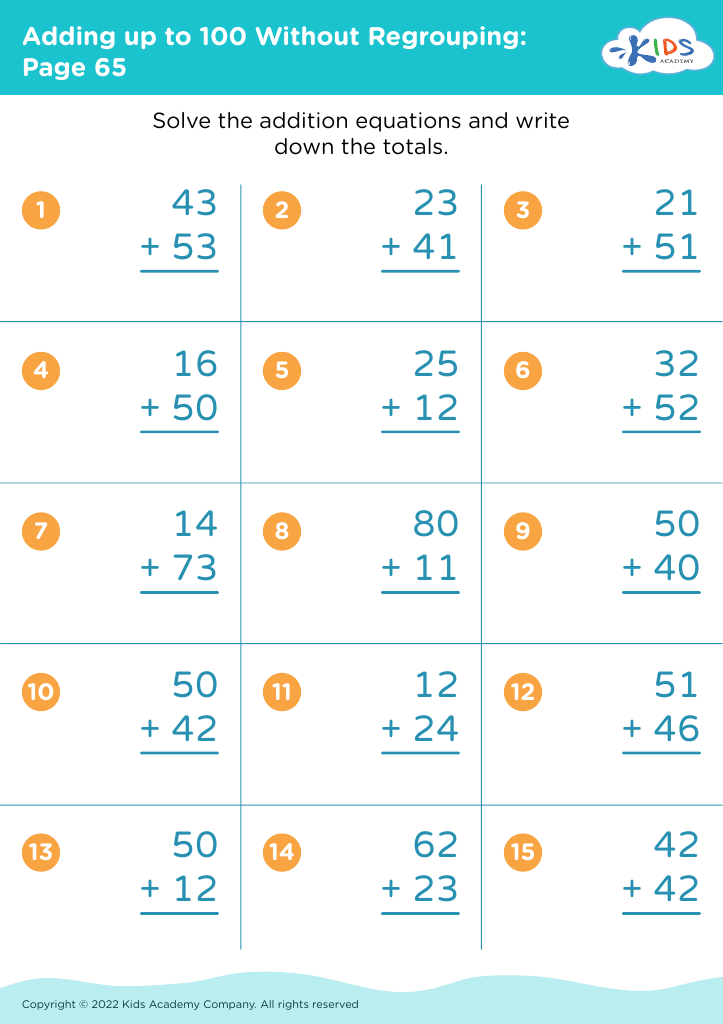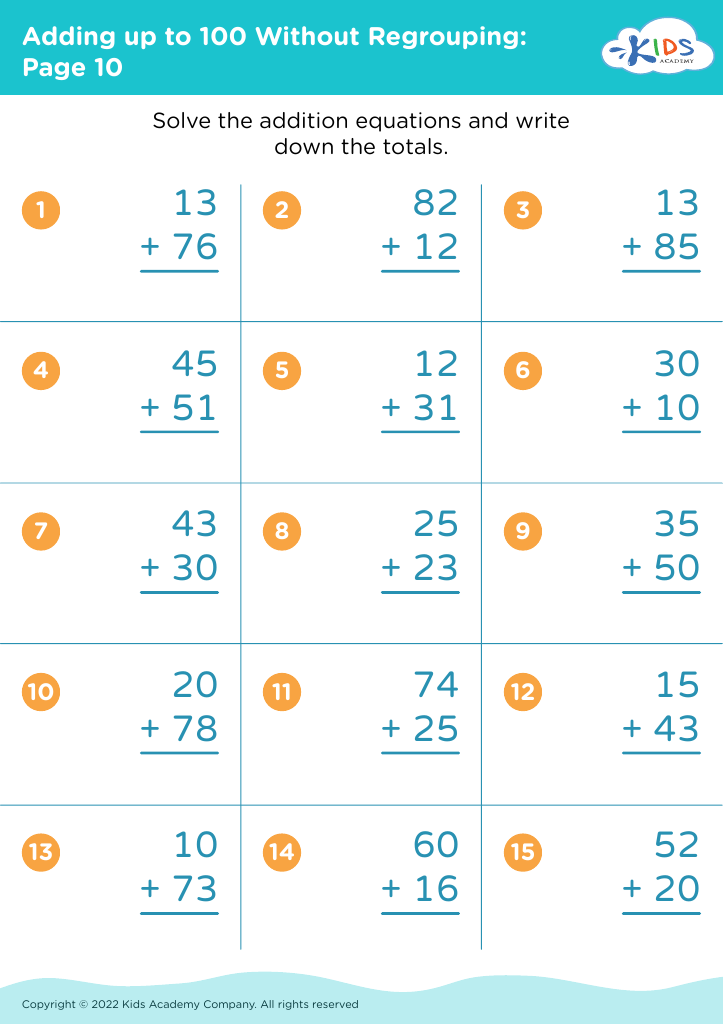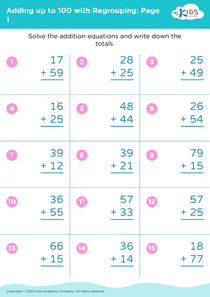Basic Math Skills Adding up to 100 Without Regrouping Worksheets for Ages 5-8
4 filtered results
-
From - To
Discover our engaging "Basic Math Skills: Adding Up to 100 Without Regrouping" worksheets, designed specifically for children ages 5-8. These carefully crafted worksheets help young learners build a strong foundation in addition using simple numbers and no regrouping. By practicing these problems, kids will enhance their number recognition, boost their confidence in math, and develop essential skills for future learning. Each worksheet is vibrant and interactive, making math fun while reinforcing key concepts. Perfect for in-class activities or at-home practice, these worksheets are an invaluable resource for nurturing your child's mathematical abilities. Start their math journey today with fun and effective exercises!
Basic math skills, particularly adding up to 100 without regrouping, are foundational for children aged 5-8. During this crucial developmental stage, children are building the cognitive skills necessary for more complex mathematical concepts. Mastering addition to 100 enhances their number sense, strengthens understanding of mathematical relationships, and fosters confidence in their abilities.
Attention to these skills aids in developing a child’s problem-solving abilities. When kids practice simple addition, they learn to approach numbers with a positive mindset, leading to a love for math. Moreover, these skills translate to real-life situations, assisting them in tasks beyond the classroom, like managing money or measuring ingredients for cooking.
From a teacher's perspective, cultivating these skills supports better classroom outcomes. Students who can confidently handle basic addition are better prepared for more advanced topics like subtraction, multiplication, and division. For parents, engaging in fun math activities can create bonding experiences while reinforcing learning at home, emphasizing the importance of family involvement in education.
Ultimately, prioritizing these basic math skills establishes a strong foundation for future learning, enabling children to thrive academically and develop a positive attitude toward math as they progress through their education.



















